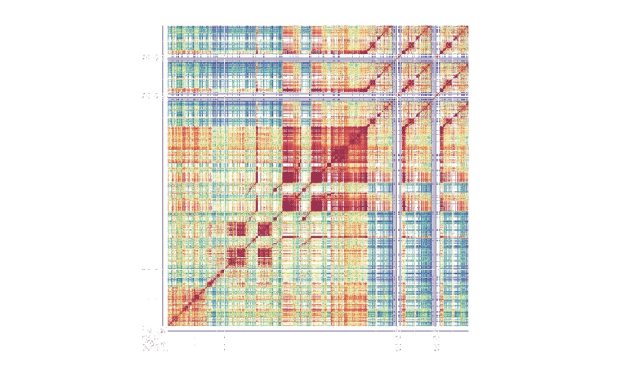Family first and Caius connections
- 14 April 2022
- 3 minutes
When Ashray Gunjur (Biological Science PhD 2021) was exploring his options for postgraduate study, he had more than just himself to consider.
Emily, his wife, was prominent in his thoughts when applying to the University of Cambridge and choosing Caius. He matriculated last October and now undertakes his research at the Wellcome Sanger Institute while also being affiliated with Cancer Research UK (CRUK) Cambridge Centre.
“Academically Cambridge and the Sanger Institute are unparalleled, and from a lifestyle point of view the stars aligned,” says Ash, who is pictured with his wife, Emily.
“The Sanger has been at the forefront of genomic medicine. It made a huge contribution to the human genome project, and is leading the cancer genome project. Being able to work at an institute with an incredible international reputation was really attractive and I really clicked in terms of the specifics of the project which I’m really fortunate to be able to do.
“I’m part of the CRUK Cambridge Centre programme, which is truly interdisciplinary, bringing together people from the genomic side, but also from molecular biology, physics, artificial intelligence. And all of these elements are relevant to the work I’m doing and I’m learning from experts across all these disciplines. Cambridge offers that unique melting pot.
“We got married and we wanted to have an overseas stint as well. We knew we were coming as a couple, and Caius was attractive to us in terms of accommodation and the support for couples and families.
“The College does have this incredible medical history, but for us really central was the fact we were coming as a couple.
“It really hasn’t disappointed; we’re really lucky and very grateful to have had the support we’ve had.”
Ash graduated from his medical degree in 2012 and has been working as an oncology specialist in Melbourne, Australia, while Emily is an anaesthetics registrar. She is a dual UK-Australia citizen, making travel and residency easier.
Ash is the MCR Committee’s Partners and Families Officer. Whether you are joining the postgraduate community from Melbourne, Victoria or Melbourn, Cambridgeshire, there is something for all – and, by extension, students’ partners and families.
One of his first acts on the committee was to survey the MCR, with over 30 respondents saying they had moved to Cambridge with a long-term partner, of which most were not affiliated with the University or Caius. Some of the respondents have children.
Ash pointed to the availability of accommodation for students with partners and families, plus the fact that Caius has its own nursery for infants.
He wants to grow the partners’ network, giving student spouses more opportunities to meet and socialise with targeted events.
Finance is another consideration when embarking on postgraduate study, and Ash has some simple guidance. Read about postgraduate costs and funding opportunities at Caius.
“My advice is to start looking early for opportunities because they abound,” he adds.
“We’re very fortunate as students at the University of Cambridge to have a number of channels for financial support: like the Gates, Cambridge Trust, the Wellcome Programme and they do support international students.
“They often open and close a lot earlier than you think. Many open and close a year prior to when you would be studying.
“Talk to people who have done it; I talk to prospective students now and having been through it recently I can help.
“My advice would be to throw your hat in the ring for everything. I was fortunate to get support through a great Australian organisation, the General Sir John Monash Foundation, and the CRUK Cambridge Centre.”
As for his PhD, Ash’s motivation was to combine clinical practice and research in the fast-moving field of oncology.
“As a field oncology sparked my interest because it combined those two passions,” he says.
“Not only do you get rich patient relationships, but every year there are breakthroughs and we need people to be able to translate those scientific discoveries to patients.”


